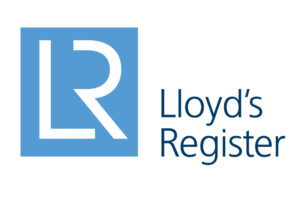
Lloyd’s Register (LR) has issued a regulatory update stating that, PFOS will be banned in fire extinguishing media from January 2026 – including firefighting foam. This applies to both fixed and portable systems and equipment.
In particular, the IMO developed amendments to SOLAS Chapter II-2 and the High Speed Craft (HSC) Codes (1994 and 2000) which were adopted in the following resolutions:
- SOLAS Chapter II-2 – MSC.532(107)
- 1994 HSC Code – MSC.536(107)
- 2000 HSC Code – MSC.537(107)
The following clarifications have also been published related to extinguishing media containing PFOS:
- IACS Unified Interpretation SC309 for SOLAS Regulation II-2/10.11
- IACS Unified Interpretation HSC11 for Regulation 7.9.4 of HSC Codes (1994 and 2000)
- The IMO has also published the same content as IMO MSC.1/Circ.1694 – Unified interpretations of SOLAS
- Chapter II-2 and the HSC Codes (1994 and 2000).
LR also confirms that these new requirements apply as follows:
- Ships constructed (keel laid) on or after 1 January 2026 and subject to SOLAS/HSC Codes must not use or store fire-extinguishing media (including firefighting foams) containing PFOS in concentrations above 10 mg/kg (0.001% by weight) upon the ship’s delivery.
- Ships constructed (keel laid) before 1 January 2026 must comply with the above requirement no later than the date of the first survey on or after 1 January 2026.
- Disposal of the prohibited substances must be done using appropriate shore-based reception facilities.
- Any declaration issued by the fire-extinguishing media manufacturer should contain information about the extinguishing media such as, but not limited to – type, production period, batch number and reference to Type Approval/MED Certificate. It must also be kept onboard and made available to attending surveyors for review and verification that the fire-extinguishing media does not contain PFOS in concentrations above 10 mg/kg (0.001% by weight).
- For extinguishing media installed before 1 January 2026, where the maker’s declaration or laboratory test reports are not available, sampling and testing of the extinguishing media onboard should be required to be conducted in accordance with a recognised standard (e.g. NPR-CEN/TS 15968) in order to verify that the firefighting media does not contain PFOS in concentrations above 10 mg/kg (0.001% by weight).
Lloyd’s Register advises that by the first survey on or after 1 January 2026, shipowners, ship managers, and ship operators must ensure they have verified that all fire-extinguishing media on board is free of PFOS or have arranged for the safe disposal of any prohibited media. Any replacement fire-extinguishing media or equipment must be appropriately type-approved, and vessels’ inventories of hazardous materials must be updated to reflect the removal of any PFOS-containing substances, where applicable.
In the future, the EU, IMO and other regulatory bodies may introduce further restrictions on the use of fire-extinguishing media containing other chemicals in the PFAS group, such as perfluorooctanoic acid (PFOA).